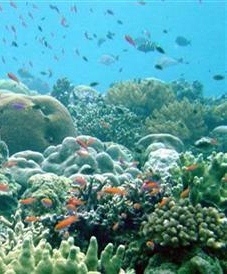Archive for February 18th, 2013

Candidates to talk corruption at university forum
 (CNS): Two PPM candidates, two C4C members and one incumbent backbench UDP MLA will be the first five people running in the May General Election to line up and talk about good governance, corruption and transparency at the first of two campaign forums at the University College of the Cayman Islands. UCCI is seeking input from the public for questions to put to PPM candidates Wayne Panton and Marco Archer, Roy McTaggart and Jacqueline Haynes from the Coalition for Cayman and the UDP’s representative Ellio Solomon during a debate set for Wednesday evening. Corruption and transparency will play a key part in this election and the university president, who is a former politician, said the forum presented an opportunity for the candidates to say where they stand.
(CNS): Two PPM candidates, two C4C members and one incumbent backbench UDP MLA will be the first five people running in the May General Election to line up and talk about good governance, corruption and transparency at the first of two campaign forums at the University College of the Cayman Islands. UCCI is seeking input from the public for questions to put to PPM candidates Wayne Panton and Marco Archer, Roy McTaggart and Jacqueline Haynes from the Coalition for Cayman and the UDP’s representative Ellio Solomon during a debate set for Wednesday evening. Corruption and transparency will play a key part in this election and the university president, who is a former politician, said the forum presented an opportunity for the candidates to say where they stand.
“As people are already aware, next year’s UCCI Conference will focus on the topic of corruption,” said Roy Bodden, a former MLA for Bodden Town and cabinet minister in the 2001-2005 UDP administration. “What better way to capture this discussion in a very tangible and real way than to have those potential representatives weigh in and let us, the voting public, know where they stand on these rather complex issues?”
Director of Student Services, Mitch Ebanks, said that, given the magnitude of issues that have been identified as important to voters combined with the current political climate, as well as the expected number of contenders at this election, theUCCI has altered the usual forum to maximize the potential for meaningful dialogue with the voters.
“By making this a People’s Forum our hope is to get the candidates to engage more with the voters, as opposed to one another, as is common in a more traditional debate, and to get down to the substance of the issues,” he added.
Invitations were sent to all independent candidates who had declared by 7 February, as well as PPM and UDP candidates and the current members of the interim government, who all say they plan to run to retain their seats on 22 May.
The candidates for the forum were selected on a first come first serve basis and Ben Meade, Cayman 27 News Director, will moderate the event. The forum will be broadcast in its entirety on Radio Cayman and the first hour will go out on Cayman 27.
Those who attend the forum will have a chance to ask the candidates questions directly or to submit questions in writing throughout the event. UCCI has already started soliciting questions from its students and the community at large.
Anyone wishing to put forward their questions can do so by emailing forum@ucci.edu.ky or by submitting questions directly to Facebook on www.facebook.com/officialUCCI. Both the email and the Facebook option will be open throughout the forum so that those watching or listening from home or the Sister Islands can interact with the candidates as well.
The event starts at 7pm on Wednesday, February at the Sir Vassel Johnson Hall. For more information, log on to www.ucci.edu.ky and click on the forum banner or email forum@ucci.edu.ky.

More bad news for regional reefs
 (CNS): Reefs in the Caribbean region have stopped growing or are already beginning to erode, according to new research. The amount of new carbonate being added by Caribbean coral reefs is now significantly below rates measured over recent geological timescales, and in some habitats is as much as 70% lower. This latest news comes at a time when the Cayman community is still arguing about the Department of Environment’s advice to expand our existing marine parks in an effort to try and save the reefs in our area. The scientists warn that unless greater care is taken of local reefs they will deteriorate considerably, impacting both tourism and fishing.
(CNS): Reefs in the Caribbean region have stopped growing or are already beginning to erode, according to new research. The amount of new carbonate being added by Caribbean coral reefs is now significantly below rates measured over recent geological timescales, and in some habitats is as much as 70% lower. This latest news comes at a time when the Cayman community is still arguing about the Department of Environment’s advice to expand our existing marine parks in an effort to try and save the reefs in our area. The scientists warn that unless greater care is taken of local reefs they will deteriorate considerably, impacting both tourism and fishing.
The research was undertaken by reef experts at the University of Queensland (UQ) in Australia and University of Exeter in the UK. The marine scientists explained that coral reefs build their structures by both producing and accumulating calcium carbonate but found a significant decline in our region. Professor Peter Mumby from UQ's School of Biological Science said this could affect millions of people who benefit from reef structures.
"Reef structures provide benefits such as being fishery habitats for seafood, they are used for recreational diving adventures, and often provide a natural barrier to storm surge," Professor Mumby said. "Our new findings imply that the benefits people receive from reefs will deteriorate considerably unless we take greater care of them.”
Coral reefs form some of the planet'smost biologically diverse ecosystems, and provide valuable services to humans and wildlife. Their ability to maintain their structures and continue to grow depends on the balance between the addition of new carbonate.
This is mostly produced by corals themselves, set against the loss of carbonate through various erosional processes. Scientists have long known that reef ecosystems are in decline and that the amount of live coral on reefs is dwindling.
This research was published in Nature Communications and is the first evidence that these ecological changes are now also impacting on the growth potential of reefs themselves.
Professor Chris Perry said estimates of current rates of reef growth in the Caribbean are extremely alarming.
“Our study goes beyond only examining how much coral there is, to also look at the delicate balance of biological factors which determine whether coral reefs will continue to grow or will erode," Perry said. "Our findings clearly show that recent ecological declines are now suppressing the growth potential of reefs in the region, and that this will have major implications for their ability to respond positively to future sea level rises. It is most concerning that many coral reefs across the Caribbean have seemingly lost their capacity to produce enough carbonate to continue growing vertically, whilst others are already at a threshold where they may start to erode.”
He added that urgent action to improve management of reef habitats is critical to reduce further deterioration of reef habitat.
However, here in Cayman the consultation is on-going and the environment minister continues to drag his feet over the need to expand marine parks as a result of complaints from some fishermen about the proposals from the DoE. The planned expansion of the parks drawn up by the DoE was based on scientific evidence and extensive research in the face of the pressing need to try and preserve Cayman’s own reefs and marine habitat.
While the reefs around the Cayman Islands are some of the best in the region because of action taken to create protected areas some 25 years ago, the reefs face increasing threats from a variety of climate related problems as well as fishing pressures.
If the parks are not expanded the preservation work of the last 25 years could be seriously undermined and Cayman’s reefs could begin to deteriorate as badly as others in the region, reducing their potential for fishing and attraction to divers.

Man seriously wounded at new BT public beach
(CNS): Police have confirmed that a 20-year-old man is currently in hospital in a serious but stable condition following an incident at Coe-wood Beach in Bodden Town on Saturday. The man was reportedly wounded at around 7pm in the evening following the inaugural jet-ski event at the newly opened public beach in the district. Police have not yet stated how the man was hurt but they are looking for witnesses who were in the area at around that time on Saturday 16 February. An RCIPS spokesperson asked potential witnesses to contact Bodden Town Police Station at 345-947-2220, the RCIPS tip-line on 345-949-7777 or the confidential Crime Stoppers number 800-8477(TIPS).
Inmates trapped in prison van
(CNS): A defendant currently on remand at HMP Northward was taken to hospital on Friday afternoon after he fainted when he and seven other prisoners were trapped and chained inside a van outside the George Town courthouse following a Grand Court hearing. According to officials, the inmates eventually broke a window in the van after kicking at the door to attract attention to their plight. The men were trapped in the van after the prison officer in charge of the vehicle left it and was locked out by its automatic central locking system. Officials say the man who passed out was treated and returned to Northward later that evening and an investigation is now underway.
The incident occurred just weeks after a report was released into the public domain by the UK’s prison Inspectorate describing inhumane conditions at the country’s prison, as well as numerous problems with the police and court cells and the questionable treatment of remand prisoners, including what was described as the disproportionate and excessive use of shackling of prisoners being transported to and from court.
On Friday it appears that after the prisoners, who were all chained and secured inside the van, were locked in at around 3pm, the prison officer set about finding a spare key, which took some twenty minutes — though the time period is in dispute. This caused a significant problem from the prisoner, who was suffering from claustrophobia.
Although the vehicle was said to have been running with the air-conditioning on, all eight prisoners were restrained inside the secure area at the back of the van. The prison supervisor outside the vehicle reportedly explained to the remand prisoners what was happening but when the affected inmate complained of claustrophobia and then fainted, the others became anxious, officials said.
“They kicked on the rear door until the metal stair outside became dislodged, causing one of the rear windows to break,” the authorities said in a release regarding the incident. Soon after the window was broken the back-up key arrived and the van was opened. The defendant, who has been charged with robbery but not convicted, had collapsed in the van and was taken to the Cayman Islands Hospital by ambulance.
As the other inmates were removed, an altercation was believed to occur before the prison officers were able to restrain the prisoners, but ten minutes later the men were back in the van on their way to Northward. The prisoner who fainted was treated and returned to prison later that evening.The authorities stated that an investigation is now underway into what happened.
Flare gun was real weapon
(CNS): Having been caught by police with a modified flare gun in his possession, a 24-year-old man is now facing a minimum of ten years behind bars after a jury found the weapon was real enough to be classified as a firearm. Marcus Steve Manderson was found guilty on Friday afternoon of possession of an unlicensed firearm by a jury of five men and two women. Although there was no evidence that the gun had been fired or used in any crimes, the jury found that the gun was capable of firing a conventional bullet and seriously wounding or killing someone. Manderson had denied not only possessing the weapon but had also argued, through his attorney, that the weapon found by police was not a lethal barrelled weapon.
During the trial, however, the jury heard that with certain modifications an officer from the RCIPS Firearms Unit was able to fire a bullet from the gun in a test situation. Two expert firearms witnesses disagreed over the capability of the weapon firing when it was recovered by police. The crown’s expert, Alan Greenspan, had said the weapon was capable of killing someone, while the defence expert, Philip Boyce, disagreed, stating that it was not, leaving the jury to decide for themselves.
The weapon was recovered by officers from the RCIPS in the early hours of 5 February last year in Windsor Park. Manderson was spotted by USGofficers on patrol and when they called to him to stop he ran off. The police gave chase and two officers watched the young man throw a dark object into a yard before they caught up with him after he fell.
Once he wason the ground, the officers cuffed Manderson and led him back to the place where he had thrown what they believed to be a gun over a fence. A few minutes later a search of the area recovered the modified flare gun.
Manderson had denied having the weapon in his possession, having stated that he had thrown a spliff over the fence as he ran way, not from police but from another man who was armed with a gun. Manderson claimed that just before the police turned up he had been trying to stop an argument at a party between two other men, one of whom was armed and it was him that he was running from. The story of another man with a gun was supported by evidence given by an unnamed witness on behalf of Manderson, who cannot be named.
DNA evidence, which was found to be a match for Manderson on two parts of the gun, that the defence argued may have been transferred to the weapon during the arrest and subsequent discovery of the gun.
Manderson also accused the officers in the case of hassling him earlier in the evening for money. The defendant had claimed that two of the police officers had given him weed to sell earlier that week that had come from the police station. Manderson said that the officers wanted money from him for the weed, however he said he had not sold it but had smoked it and as a result they were angry at him and wanted cash.
Following the verdict, the judge had emphasised that there was no evidence to support the allegations against the officers and that they had emphatically denied such a suggestion. The judge ordered a social enquiry report before remanding Manderson in custody to HMP Northward ahead of his sentencing set for 4 April. The mandatory minimum sentence following a trial for possession of an unlicensed firearm is ten years.
While a judge may find aggravating circumstances to increase that sentence, it is only under very exceptional circumstances that a member of the bench may use their discretion to reduce the sentence. While Manderson has no previous convictions for violence or weapons-related offences, he will be facing a decade behind bars.